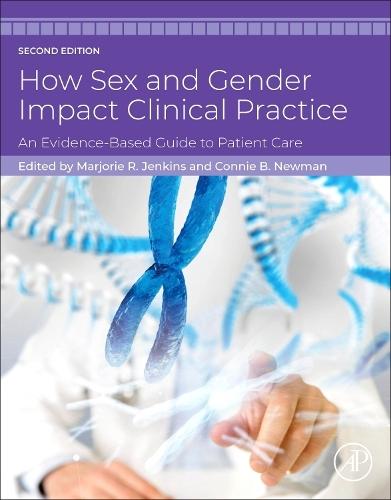Overview
How Sex and Gender Impact Clinical Practice: An Evidence-Based Guide to Patient Care, Second Edition, is an essential resource for primary care clinicians seeking to integrate sex and gender differences into their practice. This edition emphasizes the unique framework that assists practitioners in providing personalized care. It aligns sex and gender medicine with precision medicine, helping healthcare providers attract patients who value clinicians that understand the nuances of sex and gender in healthcare. How Sex and Gender Impact Clinical Practice: An Evidence-Based Guide to Patient Care, Second Edition, includes updates on the evidence-based information on disease prevalence, diagnosis, testing, and treatment, as well as a new chapter on the sex and gender aspects of pain. Each chapter reflects how sex and gender impact disease presentation, physical examination, testing, treatment, and clinical decision-making.
Full Product Details
Author: Marjorie R. Jenkins (Dean at the School of Medicine Greenville, Associate Provost University of South Carolina, and Chief Academic Officer for Prisma Health Upstate, USA) ,
Connie B. Newman, MD (Adjunct Professor, Department of Medicine, Holman Division of Endocrinology, Diabetes and Metabolism, NYU Grossman School of Medicine, New York, USA)
Publisher: Elsevier Science Publishing Co Inc
Imprint: Academic Press Inc
Edition: 2nd edition
ISBN: 9780443267123
ISBN 10: 044326712
Pages: 400
Publication Date: 01 November 2025
Audience:
Professional and scholarly
,
Professional & Vocational
Format: Paperback
Publisher's Status: Forthcoming
Availability: Not yet available

This item is yet to be released. You can pre-order this item and we will dispatch it to you upon its release.
Author Information
Dr. Jenkins serves as the Dean at the School of Medicine Greenville, Associate Provost University of South Carolina, and Chief Academic Officer for Prisma Health Upstate. She has served many additional leadership roles such as Director of Medical Initiatives and Scientific Engagement at the U.S. Food and Drug Administration Office of Women’s Health (OWH); Graduate Research Program Director, Master of Education for Health Professions at Johns Hopkins University, College of Education, Professor of Internal Medicine, and Founding Director and Chief Scientific Officer for the Laura W. Bush Institute at Texas Tech University Health Sciences Center; She is a founder and past co-chair of the National Sex and Gender in Health Professions Education Summit. She is nationally and internationally known in the area of sex and gender-specific clinical care, research application, and health professions curriculum development. Adjunct Professor of Medicine at the New York University Grossman School of Medicine, is Board Certified in Internal Medicine, Endocrinology and Metabolism, and Obesity Medicine. She is a Fellow of the American College of Physicians, the American Heart Association, the American Medical Women’s Association (AMWA), and the New York Academy of Medicine. She served as the 2018-2019 President of AMWA, an organization of women physicians, pre-medical and medical students that advocates for advancement of women in medicine, health equity and sex and gender based medical education. Dr. Newman is recognized for her expertise in hypercholesterolemia, hypertriglyceridemia, statin safety, and randomized controlled clinical trials. She is the Chair of the 2020 Endocrine Society clinical practice guideline on the management of dyslipidemia in endocrine diseases, and served as Chair of the writing group for the American Heart Association’s 2019 Scientific Statement on the safety of statins. Dr. Newman is an appointed member of the FDA Endocrine and Metabolic Disorders Advisory Committee. Dr. Newman writes and speaks on the topics of sex and gender health, high cholesterol and heart disease, and statin safety. She is the recipient of the 2020 Bertha Van Hoosen Award, named for the founder of AMWA. She is featured in “20 Women, 20 Years, an online exhibit of leaders in the medical profession, sponsored by the Women in Medicine Legacy Foundation.



